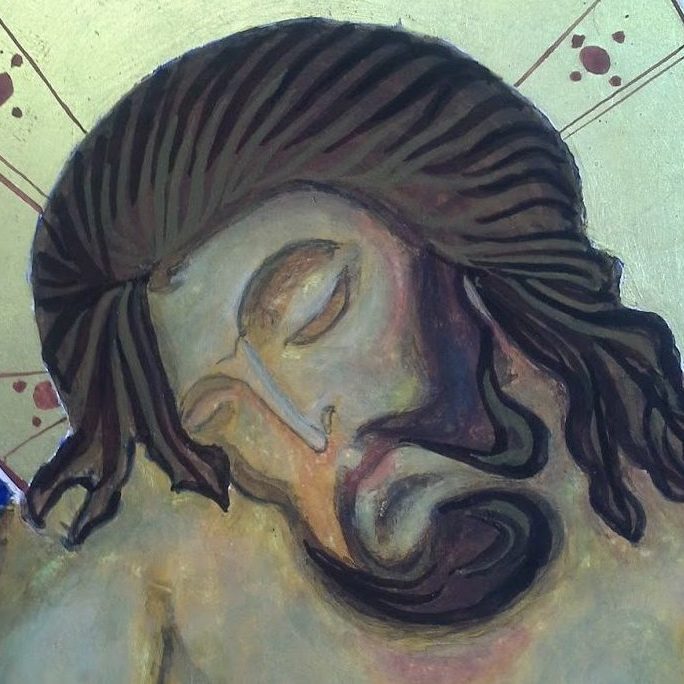Our (Church of England) readings for today are about the beginning – or even, before the beginning. How can there be a ‘before the beginning’? An impossible thing which shows us that God is beyond us, beyond our comprehension, as well as being with us in many different ways. In the same way, Jesus is ‘the image of the invisible God’ – a mystery to us, an impossibility, but nevertheless about the One who came to be with us – a human, like us. And there’s another beginning – ‘the beginning, the firstborn from the dead’. So this reading speaks of all eternity – what has been since before the beginning to what will be beyond the end – what will be beyond our lives.
This incomprehensible spanning of time and eternity is God – beyond our comprehension, yet miraculously near. With us and within us yet beyond us. I invite you to stop for a few moments in humility as you ponder God, so all-encompassing and mighty beyond measure, yet contained in a human life and susceptible to suffering and death. The most profound mystery. Our lives are indescribably small in comparison: we are like motes of dust in a sunbeam. Yet each of us is loved and held precious.
Our taming of God, our inability or refusal to stand beyond our small lives and look at eternity, is the source of our problems. It’s so easy to become self-engrossed, focussed on proving ourselves more powerful than others, obsessed with passing irrelevences and fleeting alliances. Wisdom comes when we look beyond ourselves into the vastness of God. Some of the stars we see in the sky actually died before the earth was formed: they’re so far away that their light is still reaching us, trillions of years later, even though the light’s source is long extinct. And yet, before even this, God was.
If you look carefully at the three passages set for today, you’ll see a story of creation, not of destruction, spoken by God. God spoke creation into being. In Christ, God reconciled us to God. And the Word at the opening of John’s Gospel, the source of light and life. The universe God made isn’t tame – it reflects the power and magnitude of its Creator – and yet it is the most beautiful and magnificent thing. One small corner of it is our home, and to this small corner, God came to be one of us and to show us the shape and meaning of love.
In our own small way, what we speak can also be creative. Each time we speak – either with words or actions – we can co-create with God: or we can destroy. Even non-speaking and non-action can be destructive. Thus, our faith in an incomprehensible, generous and creating God becomes small and mean – sometimes nasty. Look at the Church of England today and you’ll see this in action in our petty divisions and exclusions. We fail to appreciate the immense variety of God’s creation. This is what happens when our understanding of God becomes too small and too tame, and when we forget that we are all the objects of God’s love – not just those whose faces fit or whose lifestyle we consider to be acceptable.
It happens in our own lives too – at home, at work, in Church. In the face of a God who existed before the beginning and exists beyond the end, what is important? What really matters? Answer: what matters is that we raise our faces from our feet, from the tiny sphere of our influence and power, and look up to the vastness of creation, to marvel at the even greater vastness of the God who encompasses it all, and then to walk in humility and love. To speak words and live lives which create rather than destroy. And to rejoice that we are loved – each one of us. Thanks be to God!
Tweet